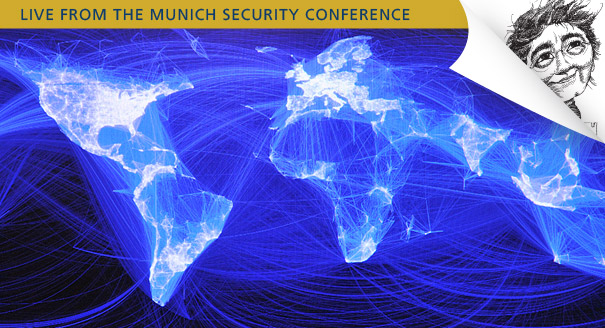Cybersecurity has finally gained traction at the Munich Security Conference.
At a panel discussion on Saturday afternoon on the topic of “Cyber Security, Crime Prevention, or Warfare?” there wasn’t a seat left in the audience.
What a difference from a year ago, when there was merely polite interest in the subject. Of course, more and more incidents of cybercrime have hit the headlines over the past few months, the most recent being a report alleging that Chinese specialists have hacked into the computer system at the New York Times. So this time around, the audience was eager to know how cybersecurity can be strengthened.
The panelists, however, had no easy answers. Despite the growing awareness of how dangerous cyber attacks can be to government agencies, financial institutions, and businesses—threatening to close down large parts of public life or the economy— security specialists have yet to come up with any long-term strategy.
Why is it so difficult?
First of all, the attackers are often as hard to identify as their motives.
Second, as panelists made clear, Western governments are unsure of how far they can go in patrolling the internet without infringing on their citizens’ freedom.
And third, governments and industry still have to consider how to work closely together to protect the internet.
Neelie Kroes, vice president of the European Commission responsible for the Digital Agenda for Europe, said it “was everyone’s responsibility,”—governments, industry, and social movements—to join forces.
After all, she added: “You are not free online if you are not safe.”
None of that seemed very satisfactory to an audience keen on solutions. But at least security experts both from the public and the private sectors are finally realizing the scope of the challenge. Let’s hope that next year around, the panel will finally have some answers.







